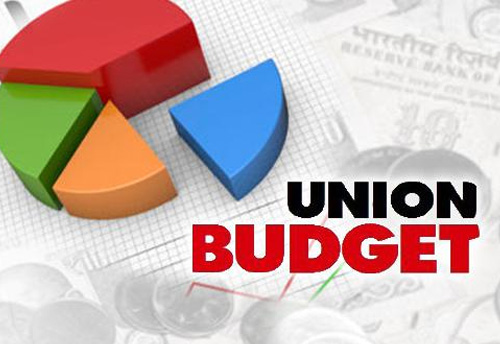Virtual digital assets have gained tremendous popularity in recent times and the volumes of trading in such digital assets has increased substantially. Further, a market is emerging where payment for the transfer of a virtual digital asset can be made through another such asset. Accordingly, a new scheme to provide for taxation of such virtual digital assets has been proposed in the Finance Bill,2022.
Meaning of virtual digital asset
To define the term “virtual digital asset”, a new clause (47A) is proposed to be inserted to section 2 of the Act.
As per the proposed new clause, a virtual digital asset is proposed to mean any information or code or number or token (not being Indian currency or any foreign currency), generated through cryptographic means or otherwise, by whatever name called, providing a digital representation of value which is exchanged with or without consideration, with the promise or representation of having inherent value, or functions as a store of value or a unit of account and includes its use in any financial transaction or investment, but not limited to, investment schemes and can be transferred, stored or traded electronically. Non fungible token and; any other token of similar nature are included in the definition.
Central Government may notify any other virtual digital asset as virtual digital asset by way of notification in the Official Gazette. The Non-fungible tokens means such digital assets as notified by the Central Government. Further, Central Government can notify such assets which shall not be considered as virtual digital assets for the purposes of the proposed section.
Income from virtual digital assets subject to tax @ 30% (Proposed to be Applicable from AY 2023-24)
The proposed section 115BBH seeks to provide that where the total income of an assessee includes any income from transfer of any virtual digital asset, the income tax payable shall be the aggregate of the amount of income-tax calculated on income of transfer of any virtual digital asset at the rate of 30% and the amount of income-tax with which the assessee would have been chargeable had the total income of the assessee been reduced by the aggregate of the income from transfer of virtual digital asset.
However, no deduction in respect of any expenditure (other than cost of acquisition) or allowance or set off of any loss shall be allowed to the assessee under any provision of the Act while computing income from transfer of such asset.
Further, no set off of any loss arising from transfer of virtual digital asset shall be allowed against any income computed under any other provision of the Act and such loss shall not be allowed to be carried forward to subsequent assessment years.
This amendment will take effect from 1 st April, 2023 and will accordingly apply in relation to the assessment year 2023-24 and subsequent assessment years.
TDS on transfer of virtual digital tax asset (Proposed to be Applicable from 1st July, 2022)
Finance Bill, 2022 has proposed to insert section 194S to the Act to provide for deduction of tax on payment for transfer of virtual digital asset to a resident at the rate of 1% of such sum.
However, in case the payment for such transfer is–
(i) wholly in kind or in exchange of another virtual digital asset where there is no part in cash; or
(ii) partly in cash and partly in kind but the part in cash is not sufficient to meet the liability of deduction of tax in respect of whole of such transfer,
the person before making the payment shall ensure that the tax has been paid in respect of such consideration.
In case of specified persons, the provisions of section 203A and 206AB will not be applicable. Further, no tax is to be deducted in case the payer is the specified person and the value or the aggregate of such value of consideration to a resident is less than Rs. 50,000 during the financial year. In any other case, the said limit is proposed to be Rs. 10,000 during the financial year.
It is also proposed to provide that if tax has been deducted under section 194S, then no tax is to be collected or deducted in respect of the said transaction under any other provision of Chapter XVII of the Act.
Furthermore, in any sum paid for transfer of virtual digital asset is credited to any account, whether called “Suspense Account” or by any other name, in the books of account of the person liable to pay such sum, such credit of the sum shall be deemed to be the credit of such sum to the account of the payee and the provisions of section 194S shall apply accordingly.
It is also proposed to provide that in case of a transaction where tax is deductible under section 194-O along with the proposed section 194S, then the tax shall be deducted under section 194S and not section 194-O.
For the purposes of the said section, it is proposed to provide that ‘specified person’ means a person:––
(i) being an individual or Hindu undivided family whose total sales, gross receipts or turnover from the business carried on by him or profession exercised by him does not exceed one crore rupees in case of business or fifty lakh rupees in case of profession, during the financial year immediately preceding the financial year in which such virtual digital asset is transferred;
(ii) being an individual or Hindu undivided family having income under any head other than the head ‘Profits and gains of business or profession’.
Taxing of Gifts of Virtual Gift assets (Proposed to be Applicable from AY 2023-24)
In order to provide for taxing the gifting of virtual digital assets, it is also proposed to amend Explanation to clause (x) of sub-section (2) of section 56 of the Act to inter-alia, provide that for the purpose of the said clause, the expression “property” shall have the meaning assigned to it in Explanation to clause (vii) and shall include virtual digital asset.
***
Don’t miss the next Tax Update / Article / Judicial pronouncement
Subscribe to our newsletter for FREE to stay updated on GST Law
Resolve your GST queries from national level experts on GST free of cost.
TW Editorial Team comprises of team of experienced Chartered Accountants and Advocates devoted to spread the knowledge of GST amongst the various stakeholders.



